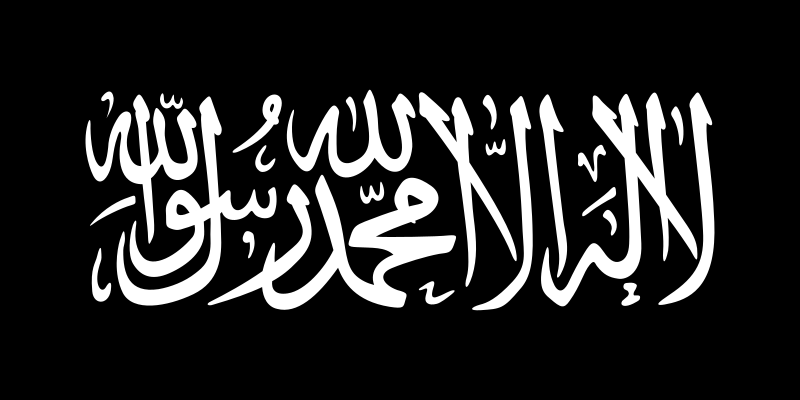Studying the Islamic Way of War-Good Saturday Read
Studying the Islamic Way of War
|
| To know an enemy, one must first acknowledge his existence. By Raymond IbrahimAt the inaugural conference for the Association for the Study of the Middle East and Africa (ASMEA) back in April, presenter LTC Joseph Myers made an interesting point that deserves further elaboration. Though military studies have traditionally valued and absorbed the texts of classical war doctrine — such as Clausewitz’s On War, Sun Tsu’s The Art of War, even the exploits of Alexander the Great as recorded in Arrian and Plutarch — Islamic war doctrine, which is just as if not more textually grounded, is totally ignored.As recently as 2006, former top Pentagon official William Gawthrop lamented that “the senior Service colleges of the Department of Defense had not incorporated into their curriculum a systematic study of Muhammad as a military or political leader. As a consequence, we still do not have an in-depth understanding of the war-fighting doctrine laid down by Muhammad, how it might be applied today by an increasing number of Islamic groups, or how it might be countered [emphasis added].” Today, seven full years after September 11, our understanding of the Islamic way of war is little better. This is more ironic when one considers that, while classical military theories (Clausewitz, Sun Tzu, Machiavelli, et. al.) continue to be included on war-college syllabi, the argument can be made that they have little practical value for today’s far different landscape of warfare and diplomacy. Contrast this with Islam’s doctrines of war: their “theological” quality — grounded as they are in a religion whose “divine” precepts transcend time and space, and are believed to be immutable — make Islam’s war doctrines unlikely ever to go out of style. While one can argue that learning how Alexander maneuvered his cavalry at the Battle of Guagamela in 331 BC is both academic and anachronistic, the exploits and stratagems of the prophet Muhammad — his “war sunna” — still serve as an example to modern-day jihadists. For instance, based on the words and deeds of Muhammad, most schools of Islamic jurisprudence agree that the following are all legitimate during war against the infidel: the indiscriminate use of missile weaponry, even if women and children are present (catapults in Muhammad’s seventh century context; hijacked planes or WMD today); the need to always deceive the enemy and even break formal treaties whenever possible (see Sahih Muslim 15: 4057); and that the only function of the peace treaty, or “hudna,” is to give the Islamic armies time to regroup for a renewed offensive, and should, in theory, last no more than ten years. Quranic verses 3:28 and 16:106, as well as Muhammad’s famous assertion, “War is deceit,” have all led to the formulation of a number of doctrines of dissimulation — the most notorious among them being the doctrine of “Taqiyya,” which permits Muslims to lie and dissemble whenever they are under the authority of the infidel. Deception has such a prominent role that renowned Muslim scholar Ibn al-Arabi declares: “[I]n the Hadith, practicing deceit in war is well demonstrated. Indeed, its need is more stressed than [the need for] courage.” In addition to ignoring these well documented Islamist strategies, more troubling still is the Defense Department’s continuing failure to appreciate the pertinent “eternal” doctrines of Islam — such as the Abode of War versus the Abode of Islam dichotomy, which maintains that Islam must always be in a state of animosity vis-à-vis the infidel world and, whenever possible, must wage wars until all infidel territory has been brought under Islamic rule. In fact, this dichotomy of hostility is unambiguously codified under Islam’s worldview and is deemed a fard kifaya — that is, an obligation on the entire Muslim body that can only be fulfilled as long as some Muslims, say, “jihadists,” actively uphold it. Despite these problematic — but revealing — doctrines, despite the fact that a quick perusal of Islamist websites and books demonstrate time and again that current and would-be jihadists constantly quote, and thus take seriously, these doctrinal aspects of war, senior U.S. government officials charged with defending America do not. Why? Because the “Whisperers” — Walid Phares’s apt epithet for the majority of Middle East/Islamic scholars and their willing apologists in the press — have made anathema anyone who dares to point out a connection between Islamic doctrine and modern-day Islamist terrorism — as witness, the Steven Coughlin debacle. This is an all too familiar tale for those in the field (see Martin Kramer’s Ivory Towers on Sand: the Failure of Middle Eastern Studies in America).
|
continue reading at www.rantburg.com/poparticle.php?D=2008-09-13&ID=249884
Categories
Archives



